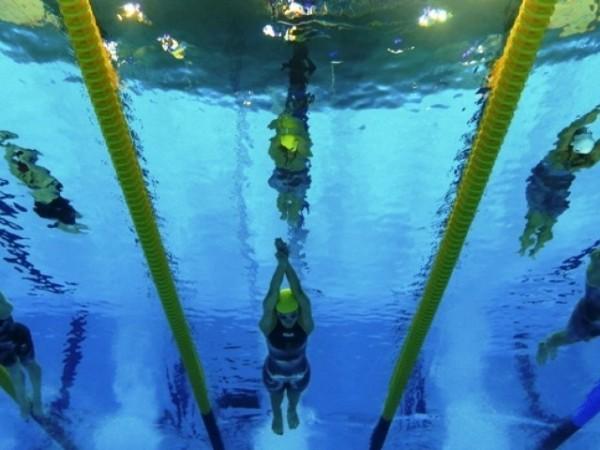
Swimming is one of the few exercises considered to be safe during pregnancy. However, a new study revealed that it can increase the risk of allergy and skin disorder in babies.
The study, published in the British Journal of Dermatology, found that airborne chemicals released by cleaning products, cosmetics and chlorine from swimming pools, contributed widely to the development of atopic allergies among people in the past 50 years, The Telegraph, reported.
People with atopic allergies experience eczema or atopic dermatitis (a chronic disease that involves scaly and itchy rashes), asthma (inflammation of the air passage that narrows the airway which carries air from the mouth and nose to the lungs) and hay fever (allergic rhinitis).Hay fever or allergic rhinitis is a cold-like symptom people develop after being exposed to an allergen.
Previous studies have shown that many factors including poor immunity caused by excess cleanliness and vitamin D deficiency lead to the occurrence.
In the new study, researchers from St John's Institute of Dermatology in London and University of Manchester found that prenatal exposure to these chemicals changes a baby's immune system, even before he/she enters the world, Daily Mail reported.
"High-level exposure to volatile organic compounds in the domestic environment either during maternal pregnancy or in early life, is associated with development of childhood atopic disease," the authors wrote in the report.
"Similarly, sustained exposure to airborne chlorinated chemicals from swimming pools during childhood has been associated with the development of atopic allergy."
Mixing chlorine with water - either through its solid (calcium hypochlorite) or liquid form (sodium hypochlorite) - is one of the most prevalent methods used to destroy harmful bacteria or pathogens that grow in swimming pools. Mixing chlorine to water leads to the creation of different chemicals.
There exists solid proof to highlight the hidden risks associated with the chemicals used in swimming pools. A study published in Environmental Health Perspectives (EHP) in 2010 found that exposure to chlorine from pools leads to DNA damage, further leading to cancer (genotoxicity) and respiratory effects.
Most of the commonly used household products contain harmful chemicals like alkylphenols (cleaning products, detergents, hair products), PBDEs (flame retardants used in furniture cushions and mattresses) and PFOA (non-stick cookware). Studies have shown that exposure to solvents found in these products during pregnancy increases the risk of birth defects like cleft palate and limb deformities in babies.










